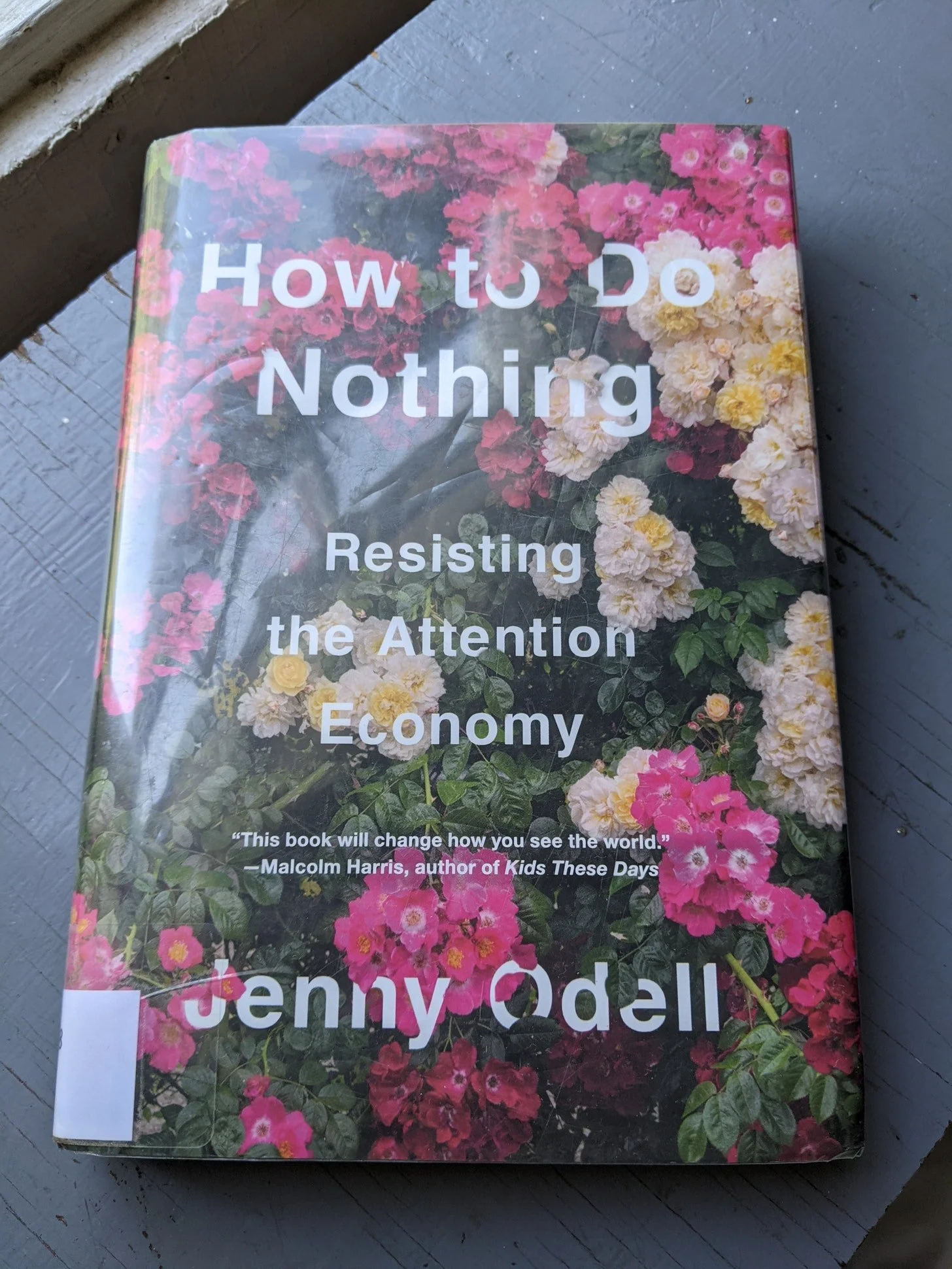Your Attention Is Very Valuable, but You Can Make It Less Profitable.
From the book, "How to Do Nothing."
I had to buy this book when I saw the title, “How to Do Nothing.” The subtitle tells you more where the writer is going: “Resisting the Attention Economy.” Jenny Odell’s book is nuanced and can definitely NOT be summed up by saying Delete Social Media.
She makes the argument that personal and societal change is the result of sustained attention. Whether it was hard-fought gains made by labor unions earlier in the 20th century or her personal creative process as an artist, these transformations happen because attention was kept on a problem or situation from day-to-day, moment to moment. We couldn’t be dissuaded from our focus. What the attention economy seeks to do is draw our attention over and over to things that may not be in line with our values or goals (to put it mildly). YouTube conspiracy videos anyone?
I’ve been thinking about this after the New York Health Act failed to come up for debate in the state legislature. The only way we will overcome resistance from private insurance companies and others is through a LOT of attention, and the kind that can’t be easily distracted by bad-faith arguments and spurious claims. It’s the power of keeping your eyes on the ball.
Obviously, there is great personal power in keeping your attention on what’s of value to you. Odell quotes Harry Frankfurt who said humans have the ability to “want what we want to want.” Amazingly, and frighteningly, the attention economy can deplete or rob us of the ability to stay connected with things that matter.
I’m trying to be more thoughtful and directed about the news and media I consume – not leaving it all up to Lord Algorithm. For me, this means actually having to search out and find information, for instance, on the New York Health Act or local news in northern Westchester where I live. Just scrolling through a feed is a limited menu, set by people with very different interests than mine.
One thing that is inarguable – even Facebook would admit it – is that our attention is quite valuable. They’ve gotten rich off of it. Part of what this book is reminding me is what a gift it is and that, as in the Buddhist principle of karma, where we place our attention has consequences for us and others.
To end on a small and practical note, I recently listened to a podcast interview with Tristan Harris, a former design ethicist at Google, and Tim Ferris in which Harris suggested turning your phone on grayscale mode as a way to mute some of the addictive property of your phone. Harris said that the vivid and bright colors of our screen, even of our email inbox, are like “candy for our brain.” So he often uses his phone in grayscale (it’s easy to turn on and off); this returns the phone to its former status as a tool for doing things rather than something we are trying to take a hit of.
I've done it and am amazed how much less interested I am in my phone without color on the screen. Simon & Garfunkel were right:
“Everything looks better in black and white...”
Here’s how to turn your screen to grayscale.
